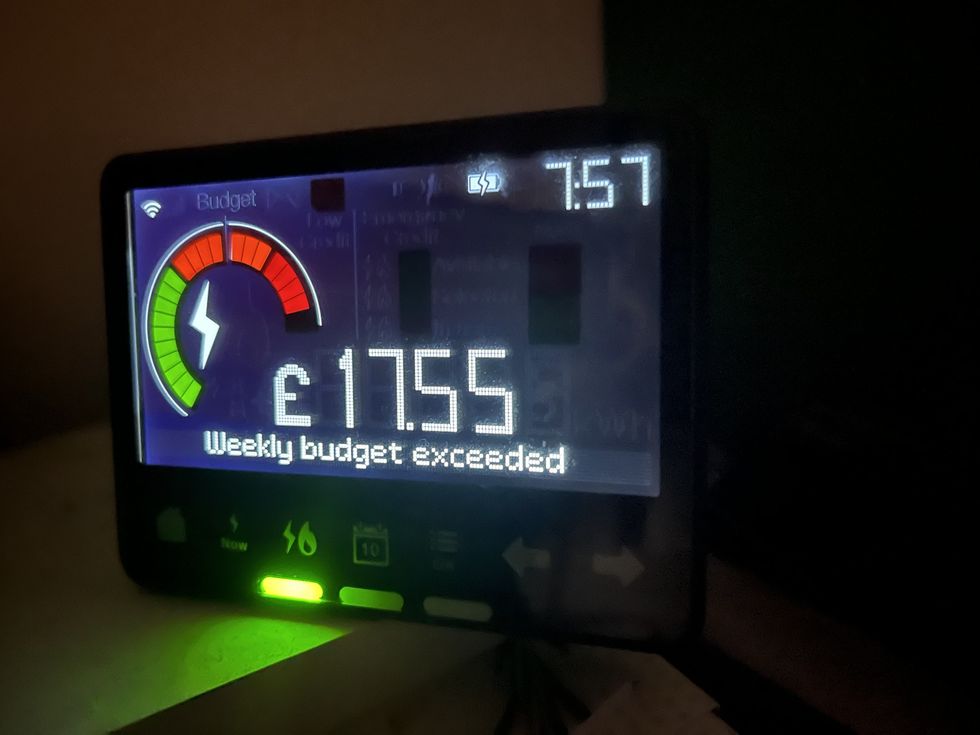Nearly one million UK households are facing a critical deadline to replace their energy meters before a major network shutdown next summer.
The Radio Teleswitch Service (RTS), which controls energy tariffs for hundreds of thousands of homes, is set to be deactivated on June 30, 2025.
This looming change affects over 800,000 households, many of whom rely on Economy 7 and other multi-rate energy tariffs.
These meters, which charge different rates based on the time of day, operate using the RTS signal broadcast alongside BBC Radio 4’s long-wave channel.
The consequences of failing to replace these meters could be severe. Customers may lose access to cheaper energy rates, leading to substantial bill increases.
Some homes, businesses, and schools could even find themselves without heating or hot water, while others might be unable to switch off their heating systems.

The phasing out of RTS meters is part of a broader modernisation effort in the UK’s energy infrastructure
GETTY
RTS meters are a crucial component of many UK households’ energy systems. They function by receiving signals from the RTS network, which controls when to switch between peak and off-peak rates for electricity usage.
Charlotte Friel, director of consumer protection at Ofgem, explained to BBC Radio’s Good Morning Scotland programme: “Typically if your meter switches between on and off-peak rates, if your home is heated by electric storage heaters and if you live in a region that is off-gas supply, these are typical features that could mean you have an RTS meter.”
The phasing out of RTS meters is part of a broader modernisation effort in the UK’s energy infrastructure.
The only solution for affected households is to transition to smart meters, which will still allow access to multi-rate energy tariffs, including Economy 7.
Frazer Scott from Energy Action Scotland warned that there could be potential problems with the roll out. She said: “With the scale of these changes over such a short period of time, we’re really concerned that it’s simply not going to happen.
“And the consequences are considerable for all those households that might be affected when it’s switched off.”
Without replacement, customers could lose control of their heating and hot water systems. This might result in these systems being permanently on or off, leading to discomfort and potentially dangerous situations.
Moreover, the loss of access to cheaper off-peak rates could cause substantial increases in energy bills. Scott emphasised the need for “proper support” for people in case their heating fails and called for assurances that bills would not rise as a result of meter changes.
In response to this urgent situation, energy suppliers, the Government, and consumer groups have pledged to work together to replace RTS meters before the switch-off.
Ten major energy companies have signed up, including British Gas, EDF, E.On, Octopus, Ovo, Scottish Power, So Energy, SSE, Total Energies, Utilita and Utility Warehouse.
Industry regulator Ofgem, trade association Energy UK, Distribution Network Operators, Smart Energy GB, and consumer groups are also involved in this collaborative effort.
The initiative aims to accelerate the replacement of RTS meters, which at the current pace would take until 2028 to complete across the UK.
Friel stressed the urgency, stating: “The pace of replacement is not where it needs to be. The industry has been working on RTS replacement for some time and has replaced 200,000 meters this year, but there are still 700,000 to go.”
LATEST DEVELOPMENTS:
The industry’s Call To Action outlines several key measures to address the RTS meter replacement challenge:
- Focusing resources on regional hotspots with the highest number of RTS customers.
- Fast-tracking meter upgrades for RTS customers.
- Prioritising vulnerable customers for upgrades.
- Collaborating to solve technical issues by pooling knowledge and expertise.
- Providing monthly reports on meter replacement progress.
- Assessing if additional steps are required.
Importantly, smart meter installations come at no cost to customers, as suppliers will fit them free of charge. Those affected by the RTS switch-off won’t face any fees.
Friel emphasised: “It is on suppliers to reach out to customers but they can play their part too by letting engineers in to upgrade their meters.”
Customers unsure about their meter type should contact their energy supplier for advice and potential appointment scheduling.